Cinema Fanatic’s Favorite Fifteen Films of 2020
Again, sorry for the delay on this post. If you follow me on Twitter or Instagram (oldfilmsflicker on both), then you’ve likely already seen this list, but along with the list I’ve written at length about each of my favorite films from 2020, what resonated with me, and why I loved them so. You can see the whole list of how all 2020 releases ranked here.

Somehow this is my 12th year doing a Favorite Fifteen Films roundup on this blog. You can see all previous years here. And now without further ado, here in descending order are the my favorite fifteen films from 2020.
15. The Assistant (dir. Kitty Green)

I didn’t see this one in theaters because I thought it would be too bleak and that I regret (and not just because it was one of the few chances I would have had to see a film in theaters last year). Julia Garner plays Jane an assistant in an unnamed film production company (that is not so subtly inspired by the Weinsteins) who over the course of a single day begins to doubt her choice to work in this industry. While the big splashy headline of the film is the way it subtly shows the sexual abuse rife within the industry, for me what was the most resonate was the other micro-abuses the film highlights. Jane comes to work before the sun is up and leaves after it’s set, she is stuck doing menial tasks and barely has time to eat (at one point she eats fruit loops, and at another she waits for some sad microwave meal and it was too, too real), her fellow assistants are dude-bros who have made a career out of looking the other way, her boss yells indiscriminately and also forces her to write apologies for incidents that should not require any such thing, the few employees higher on the food chain who deign to speak to Jane are either so battle-worn they’ve given up having any principals – or perhaps never had them in the first place, and in, for my money the best scene in the film, H.R. remains completely and totally useless. Anyone who has worked in entertainment (and perhaps all of corporate America) has likely had a similar incident where they attempted to “do the right thing” and take a concern to H.R. only to be completely stonewalled and made to feel awful for wasting everyone’s time (I know I have!). What is so impactful about Julia Garner’s performance is it’s physicality – and I do not mean in a grandiose way – but rather, in her body language, in the way she holds her head, the response to what is happening around her as it plays on her face. This is a performance where the interiority of the character is broadcast so loudly, but through the most subtle ways. The H.R. scene in particular is a standout for how in control of her own body Garner is as a performer. Hopefully the film will be a warning to those who think working in the movies is all glitz and glamour, though much like Jane towards the end of the film, even once you know the horrors of the industry, it’s hard to quit the dream that it could be something greater.
14. Monsoon (dir. Hong Khaou)

I loved Hong Khaou’s debut film Lilting and had been waiting for a follow up for about six years. I was not disappointed. The film follows Kit (Henry Golding), a Vietnamese-born British man who returns to Saigon for the first time since his family fled during the war. There he reconnects with his past – and relatives who were left behind – as well as beginning a relationship with an American ex-pat (Parker Sawyers), whose father was an African-American solider during the Vietnam War. As with Lilting, the film is pulsating with deep emotions and feelings of longing and regret, which coupled with Benjamin Kracun’s stunning cinematography of Vietnam cityscapes, create a real sense of place for viewers. This would make a great double feature with Spike Lee’s Da 5 Bloods, given both film’s examination of modern Vietnam and the ghosts that forever haunt it.
13. Da 5 Bloods (dir. Spike Lee)

Spike’s film shows us two aspects of Vietnam: a troupe of Black soldiers during the run of the war who find themselves fighting for a country that does not care about them, and that same group as they return to a Vietnam that has changed greatly since their first visit. Led by powerful performances from Delroy Lindo and Chadwick Boseman, the film is in a sense a reworking of The Treasure of the Sierra Madre by way of Apocalypse Now – both films about madness, though a madness brought on by different forces. In Da 5 Bloods the madness of war collides with the lust for riches, coupled with a deep sense of loss and regret. While Lindo’s jungle monologue will go down as one of the great monologues in cinematic history, the moments that linger the most in my brain are those of connection. One of the Bloods Otis (Clarke Peters) reconnects with a woman he shared a life with (which leads to a beautiful moment at the end that I don’t want to spoil), David (Jonathan Majors) attempts to connect with his father (Lindo) and although it is mostly rough going, there is one scene that shows that despite it all there is a great love in him, and lastly there is a scene where Lindo and Chadwick connect and all the strife and grief and guilt are lifted. Chadwick will grace this list twice this year, as with his final two films he showed us what it is to give your all to your art.
12. Bloody Nose, Empty Pockets (dir. Ross Bros.)

I haven’t seen the earlier films by the Ross Bros. (though they are on Criterion Channel, so I am excited to catch up with them) prior to watching this film, so I wasn’t exactly sure what I was going to be in for. What I truly did not expect was just how much I needed a film like this in 2020. Whether it’s fiction or documentary or docudrama or whatever else is besides the point; what it does is use the power of cinema to distill and share with us a very distinct atmosphere and vibe. And what a vibe. The film follows the last day of a dive bar in Las Vegas (not really filmed in Las Vegas) as seen by two bartender shifts (day and night) and the regulars who call this their home away from home (and one who may very well call it his home home). Shot in 2016, the film hits on certain aspects of America that are no more (those waning pre-Trump days), but by being released in 2020 it brought something desperately needed: a feeling of community. This is the hang so many of us wish we could have had this year, whether you have a favorite bar where the bartender knows your name and you vaguely know the regulars, or you just enjoy dropping into dive bars you’ve never been to before. A movie rich with a sense of place, you feel as if you are in the dimly lit bar among the characters, you can practically smell the cigarettes and alcohol. As someone who has had my fair share of raucous nights in dive bars, I felt a deep ache watching this film, longing for the kind of connections with our fellow humans we so often take for granted. Yes, I miss my friends and family, but goddamn I miss getting one too many drinks with random people swapping stories with no shame and no recourse because you’ll probably never see them again anyways, then thinking back fondly on them and that one ridiculous night where you shared a little piece of existence together.
11. Never Rarely Sometimes Always (dir. Eliza Hittman)

Hittman is a filmmaker who rarely disappoints and if this is your first exposure to her work I highly recommend her earlier features It Felt Like Love and Beach Rats (as well as her shorts). She is a filmmaker who knows how to mine small, personal stories and make them feel like epics. Sidney Flanigan plays Autumn, a teen who has found herself in an unwanted pregnancy. An attempt to get help at a women’s health clinic in her hometown proves fruitless as it has a clear anti-abortion bias, she then opens up to her cousin about her predicament. Finding strength in each other, the two grab some cash from their dead-end grocery store job (I’m sure there are some people who griped about the portrayal of the abusive manager, but I think most women who have worked menial jobs in their youth have been sexually harassed by someone in power at those jobs. It’s one of those experiences that I think have to be lived to be understood, and why it’s so important to have women telling women’s stories), and leave their rural Pennsylvania for a trip to a Planned Parenthood in New York City. Trials and tribulations ensue as the two have to spend more time in the big city than they expected in order to achieve their final goal. While on paper the plot points of the film may seem extremely bleak, Hittman and her cast never settle for despair, but rather imbue the characters with a sense of hope. Hope that even in the most dire of situations, there is a power in women and a power in women’s friendships that is stronger than all the shit that life can throw at them. The film also serves as a stark reminder that this country does not care about the health of women. That our bodily autonomy is always under attack. That we must always be fighting for those like Autumn who are trapped by decades of bad legislature. We owe that much to our future.
10. Dick Johnson Is Dead (dir. Kirsten Johnson)

I actually saw this film at the end of 2019 when I was prepping for Sundance for my erstwhile job and it has stuck with me all this time. Kirsten Johnson’s ode to her father is heartfelt and whimsical and only really works because Dick Johnson is Dick Johnson. Ever the optimist, Dick Johnson is facing the early stages of dementia with grace and humor – and a deep-felt love of chocolate cake. His daughter Kirsten, whose previous documentary Cameraperson explored the complexities of documenting humanity for a living, decides she wants to capture his remaining years on film. This in turn expands to creating various scripted deaths for her beloved father. The result is a mixture of staged action, whimsical flights of fancy, and bittersweet every day moments with her family. Both a scrapbook and fairytale, Dick John Is Dead asks us to cherish the memories from our past and not to fear our future, but mostly to enjoy the present in all its messy, wonderful glory.
9. Eurovision Song Contest: The Story of Fire Saga (dir. David Dobkin)

Someone on Instagram told me that I lost all my legitimacy because of this pick and I’m sure they’re real fun at parties. To quote Rachel McAdams in the film, sometimes I just love stupid things. That said, this movie is one of the best romantic comedies of the year, with McAdams and Will Ferrell giving two of the most charming performances of the year (not to mention Dan Stevens, who somehow managed to charm me despite my intense dislike of him in Downton Abbey). McAdams and Ferrell play Lars and Sigrit, who are in a band – the titular Fire Saga – that fail upwards to a spot representing Iceland at the Eurovision Song Contest. For those who are fans of the real Eurovision, this is not a parody; it is a loving ode to the contest. Ferrell, whose wife is Swedish, is a superfan and this was a passion project of his. The film explores the drive towards a goal that can sometimes consume your whole life and what it can mean to reach it and realize it’s not actually what you wanted. It explores the fraught relationship so many of us have with our hometowns, with our parents, with the image we have presented to the world for so long. What happens when you let all your preconceived notions of yourself go? What happens when you stop planning your life and really start just living it? As silly as this film is, it also explored some complex emotions I’ve been experiencing myself as I head into what will soon be my 35th year (I mean, WHAT?) and really start to look hard at what I made priorities in my life and what I let slide. I’m sure that anonymous commenter on Instagram didn’t actually watch this film, or if they did they didn’t see in it what I saw. And isn’t that the beauty of cinema?
8. Nomadland (dir. Chloé Zhao)

Chloé Zhao has probably hit what it is to live in the American West better than any artist since Sam Shepard, and like Shepard she examines the American West’s many facets: the allure of its vast emptiness, but also the myth of freedom that permeates throughout it, past and present. Based on the non-fiction book of the same name, Zhao has cast some real people from the book as themselves, while adding the fictional characters of Fern (Frances McDormand) and David (David Strathairn), two older people hitting the age of retirement but who are unable to do so due to the failing economy (the book and film are both set during the recession). The film follows widowed Fern as she turns to living the life of a nomad, packing her whole life into a camper van, and driving around the American West taking seasonal jobs to support herself. I don’t want to spoil too much of the ending as I know the film hasn’t hit wide release yet, but for me it is the very end of the film that resonated the most with me. With that said stop reading here if you don’t want SPOILERS.
While some may read it as her letting go of an old life (and that is surely what is happening as she says goodbye to her old home where she’d lived so long with her husband), what struck me was how Fern’s desire for the freedom she finds on the road and her rejection of offers of a stationary home from her sister and then with David, was in turn not actually freedom, but a different kind of cage. She is trapped in an endless cycle of jobs and work for corporations that do not value her (anyone who says this film is an ad for Amazon or paints the company in a positive light saw a different movie than I did). There’s a part in one of the Little House on the Prairie books where Pa looks out and gets the itch to keep moving west, but he has a homestead and a family and he owes it to them to stay put. Laura feels the same itch and is young and unrooted and is able to carry on his itch to keep moving. When I was a kid this felt exciting. This idea that if you keep moving, you don’t put down roots, that that is freedom. And maybe it is in a sense, but it seems to me the film shows that even within that idea of freedom most people are stuck reliant on an economic system that does not support them, whether you’re in it to keep a stationary home and roof over your head, or you’re in it to keep enough coins in your pocket to keep moving in your van. Fern is just as stuck in this system as anyone, and the American West doesn’t offer anything that different, beyond maintaining a mystique the rest of the country never had.
7. What Did Jack Do? (dir. David Lynch)

Yes this is a short film. Yes technically it was commission by and played at the Fondation Cartier pour l’Art Contemporain in Paris in 2017. But it didn’t receive a wide release until last January on Netflix and therefore it counts as a 2020 release. This is my blog and I make the rules. In the film, David Lynch plays a detective who has sat down in a bleak train station with a monkey named Jack who may or may not have committed murder. There is coffee. There is a waitress. There is NO pie. But there is a surreal torch song and perhaps the ghost of a chicken. This is everything I need in a movie and more. The best comedy of 2020 hands down. I’ve watched it countless times and nothing makes me laugh quite as deeply. A much needed respite.
6. i’m thinking of ending things (dir. Charlie Kaufman)

I would say I am a big Charlie Kaufman fan but then I would feel like a fake fan as I actually haven’t seen his other two directorial efforts (a blind spot for sure!!!), but I do love him as a writer (I’ve seen four of the five films he wrote before he began directing his own scripts). That confession notwithstanding, I absolutely loved this film and I think my status as a fan, or at least as someone who finds themself on his wavelength is a big part of why I loved it. Firstly, Jessie Buckley can do no wrong (and please for the love of movies everyone watch Beast already!!). Secondly, I love that the movie takes on the idea of contemporary personalities being an amalgam of all the pop culture we consume. I for one am guilty of this. Like the work of David Lynch, Kaufman takes every day situations – in this case meeting the parents – and infuses them with the surreal in order to heighten the feelings he is exploring. I love that a big theme in most of Kaufman’s work (again, having not seen Anomalisa or Synecdoche, New York) is the abject frustration of a creative who either doubts their own talent or possibly has no discernible talent but desperately longs for talent, or at the very least a creative outlet in which they can express themselves. I think most creatively inclined people, whether they admit it or not, tend to also lean deeply into a fraught mixture of self-loathing and self-aggrandizing, which, depending on the person, can also see that internal conflict negatively effecting their ability to engage empathetically with others. In short, a lot of us are egotistical monsters whose inability to reach our own creative goals handicaps our ability to literally do anything in life – including build meaningful relationships with others. You hate love to see it.
5. Small Axe: Lovers Rock (dir. Steve McQueen)

Speaking of movies that are a whole vibe. This is THE vibe we needed in 2020. While Steve McQueen’s Small Axe taken as a whole is perhaps the greatest singular achievement from a filmmaker in 2020, for me Lovers Rock was the absolute pinnacle of its greatness. Taking place in just one night (and the very early morning after), we see several characters as they get ready to attend a house party, as they set up the house for the party, get their clothes and hair just right in anticipation of the house party, wait for and take the bus to the house party, meet friends and lovers at the house party, rock out to the beat at the house party, fight off jerks (read: rapists) at the house party, get abandoned by friends at the house party, make new connections at the house party, and so much more. More than anything during quarantine I’ve missed going out to concerts and dancing with complete strangers for hours on end, a transcendent feeling that only music and the company of others can truly bring about. This movie captures that spirit and then some. Also, within the purpose of Small Axe, it shows the importance of community and a place of their own for West Indian immigrants in London (this point is also made in the first film in the series Mangrove). The freedom to have a place to just be yourself and groove is something I think we’ve all taken for granted until 2020 had us all confined to our homes, but with this film McQueen also reminds us how many before us (and even today still) literally had to fight for their right to party.
4. Ma Rainey’s Black Bottom (dir. George C. Wolfe)

I saw this film shortly after watching Da 5 Bloods, both early on in quarantine as part of my work for my then-job. This was months before news of Chadwick’s passing. I told everyone at work via Slack that Chadwick was at his absolute best in this film and that I could not wait until the rest of the world were able to see the film as well. A few months later Da 5 Bloods was released and Delroy and Chadwick were immediately frontrunners for awards season. Cut to that terrible day in August when we heard news of his passing. A strange day for everyone, but particularly strange for those of us who worked on the campaign for D5B and were deep in the campaign for Ma Rainey. How do you make sure you do right by his legacy? For me, that was to make sure I told every single person I knew that they HAD to see this film. It filled me with such joy when those who saw the film in its early screening shared my thoughts: that this was a pinnacle, an electric not-to-be-missed performance from one of the finest performers of their generation. What haunts me, and I’m sure anyone who saw the film before the news of his passing, is how when I saw it and felt the life in it and the urgency, I had no idea this would be his final work. What a different feeling it must have been then for everyone who watched it with that thought in their heads. It makes me think of David Bowie’s album Blackstar and Sam Shepard’s book Spy of the First Person, both pieces of art crafted as their makers were dying. Both creations that were made to capture that feeling of man’s own mortality as they faced an assured end (we all die in the end, but what a strange notion to truly know your time is numbered and be staring down that inevitability). When I watched the film again after its release, I couldn’t help but wonder if Boseman, like Bowie and Shepard, also put everything he had left into this performance because he knew it would be his last, because he knew he had to put everything he’d learned about life and love and sex and suffering and entertaining into one last piece of art. As with Blackstar and Spy of the First Person, I am grateful for his foresight and for the legacy he left behind.
3. First Cow (dir. Kelly Reichardt)

This was the very last film I saw in theaters in 2020, though I did not know it was going to be such at the time. It was actually not even at a real theater, but a screening room before the film’s actual release (Todd Haynes was there; Gus Van Sant sat directly behind me). Kelly Reichardt is another filmmaker whose bulk of her career aims to make sense of the American West (like Chloé Zhao who is from Beijing, Reichardt is not from the American West at all, but was actually raised in Florida.) Like Meek’s Cutoff, in this film Reichardt turns her camera to the Pacific Northwest in 1800s, though in this case instead of pioneers in search of a better life, we go even further back, to a time when the land was mostly inhabited by soldiers, fur trappers, and the native tribes trying to adjust to their new reality. We follow Otis “Cookie” Figowitz (John Magaro), a chef (who learned his trade as an indentured servant) as he meets King-Lu (Orion Lee), a Chinese immigrant on the run. The two form a close bond and start a business selling biscuits. After they begin stealing milk from the titular first cow and aim for the American Dream of a bigger, better business in San Francisco things naturally go awry. As with most of her filmography, Reichardt not only explores stories of the American West and the kind of people who are drawn to it, she also explores the quieter sides of masculinity, calling back to her earlier film Old Joy. The world can be a hard place for empathetic people, and as we saw with Lily Gladstone’s character in Certain Women, it’s even harder in the face of the harsh frontier where people are as sparse as the land is vast. But when you do make a connection, that’s where the magic of existence unveils itself.
2. Emma. (dir. Autumn De Wilde)

This should have been my final film in theaters. I didn’t see it when it was initially out in February because it was only at the ArcLight and I had had some bad experiences there in 2019 (mostly lots of very uncleanly seats – and at $19 a pop the least I can ask for is a seat that doesn’t have crumbs and possibly spit??? all over it!!), so I was waiting for it to move to the Los Feliz 3 where I could see it in an actual clean theater and for a much cheaper price and lo the weekend it had moved to that theater was the weekend lockdown came to Los Angeles. Alas, the joke was on me, because not only did I pay $19 to finally watch it when it came out on VOD (I watched it twice that weekend since it was a 48-hour rental), but I wound up absolutely loving it and I will forever regret that decision to skip it at the ArcLight because I can only imagine how glorious the above scene with Johnny Flynn’s flummoxed Mr. Knightley slightly disrobing and laying down on the ground in utter erotic frustration must have been on a giant screen (not to mention his introductory scene which included his bare buttocks). Emma is not my favorite Jane Austen book, actually far from it, and while I do enjoy the 1996 version, there are certain aspects of that adaptation that I do not particularly enjoy, so I was not convinced I was going to even like this version (despite being a fan of De Wilde’s photography, as well as an A-1 Johnny Flynn Stan – again, see Beast!! – as well as Lovesick and Song One), hence my decision to wait for the cheaper theater. What a dope I was!!! There are many aspects of this film to applaud – the art direction, the costumes, the cast (Bill Nighy has never been funnier) – but I am just going to keep harping on Johnny Flynn because he has a unique screen presence that is both erotic and aloof and I literally cannot think straight when he is on screen (the best kind of film criticism is film criticism that admits that we are all horny just so you know). He’s also great in the up-coming film The Dig (which I actually saw in MAY back when it was supposed to be a 2020 release, and it would have been on this list had it been because hello Johnny Flynn AND Carey Mulligan in one film??). The two films I re-watced the most in 2020 (not counting The Age of Adaline) were Emma. and Eurovision. They are both swoony romances on the surface, but they also both have a lot to say about growing up (at any age), the importance of empathy, our love-hate relationship with our childhood homes, and how people at our core need relationships (romantic, filial, familial, platonic, friendships, etc.) in order to bring the best out in us.
1. Driveways (dir. Andrew Ahn)

Every year I wait for a movie to leave me absolutely breathless. I feared that 2020 would disappoint as it got deep into December and I had yet to feel a certain indescribable pang I often feel from a piece of cinema. I had somehow missed Driveways upon its initial release early in the summer, but thankfully watched it in the latter half of December and that feeling I thought would escape me in 2020 had arrived. I like to say a movie made me so emotional that it punched me in the face and this movie provided that pummeling I had so longed for. The thing is, this feeling does not come from sad films, but rather from films that feel so real, that mine human connections so deeply, that get to the core of what it is to really connect with another person, that they transcend cinema into something deeper about humanity, something that lurks within our subconscious. That is the smack I long for each year and this film delivered big time. From a screenplay by Hannah Bos and Paul Thurteen, and directed by Andrew Ahn, Driveways follows Kathy (Hong Chau) and her son Cody (Lucas Jaye) as they clean up her recently deceased sister’s home, from whom she had been long estranged. Next door lives Del (Brian Dennehy, in his final role), a retired widower who has accepted that the rest of his life is pretty set in stone. The three of them form a bond through simple actions (sharing water from a hose, a lift to bingo) that none of them expected. It shows how sometimes little actions, little pieces of empathy can change us forever. This is a film filled with empathy and love, not just between the characters, but for the characters, and for the struggle and joy that is life itself.
There is a clear theme of connections and family throughout the films that resonated with me deeply this year, and part of that has to do with the quarantine and lack of psychical connections with almost anyone for an entire year, and part of it had to do with my Grampa’s passing in September. I haven’t yet written about that experience because I am still processing it, but I think sitting with him for his last week changed me in a way I am not quite capable of expressing just yet. What I do know is that while cinema is a good mirror into what is great about life, it is not life. It helps us cope with our fears and recognize our joys, but it is not life. It allows us to feel seen and to feel heard, but it is not life. I love cinema deeply, but I miss real life.
Posted on January 11, 2021, in Top List and tagged Andrew Ahn, Autumn De Wilde, Bloody Nose Empty Pockets, Charlie Kaufman, Chloé Zhao, Da 5 Bloods, David Dobkin, David Lynch, Dick Johnson Is Dead, Driveways, Eliza Hittman, Emma, Eurovision Song Contest: The Story of Fire Saga, Favorite Fifteen, First Cow, George C. Wolfe, Hong Khaou, i'm thinking of ending things, Kelly Reichardt, Kirsten Johnson, Kitty Green, Lovers Rock, Ma Rainey's Black Bottom, Monsoon, Never Rarely Sometimes Always, Nomadland, Ross Bros, Small Axe: Lovers Rock, Spike Lee, Steve McQueen, The Assistant, What Did Jack Do?. Bookmark the permalink. 2 Comments.


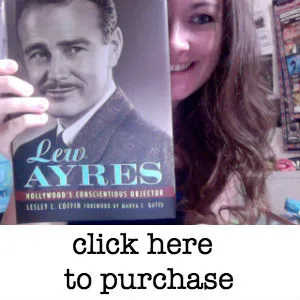

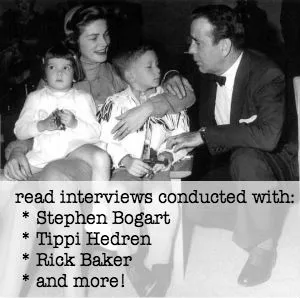
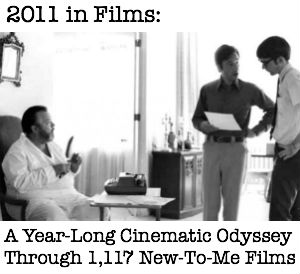
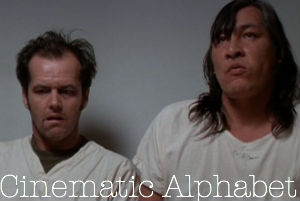

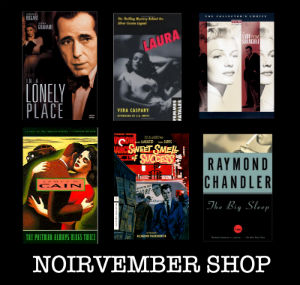
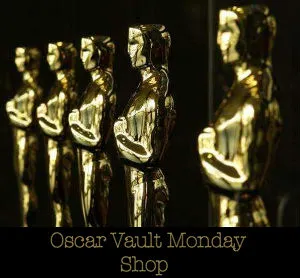







I’m so glad you included The Assistant in your list of favorites. Your assessment of it is pretty much what went through my mind when I saw it, one of the last movies I saw in the theatre in 2020 (Emma. was the actual last one for me). The film inspired me to write a poem; I also loved the HR scene with Matthew Macfayden.
Oh, this was a beautiful read through the year in film. Some of these are on my list, some are on my urgent to-watch list, and a couple you have just made me add to my watch list!
I hope you get a chance to see Emma. on a big, big screen in the future! 💕